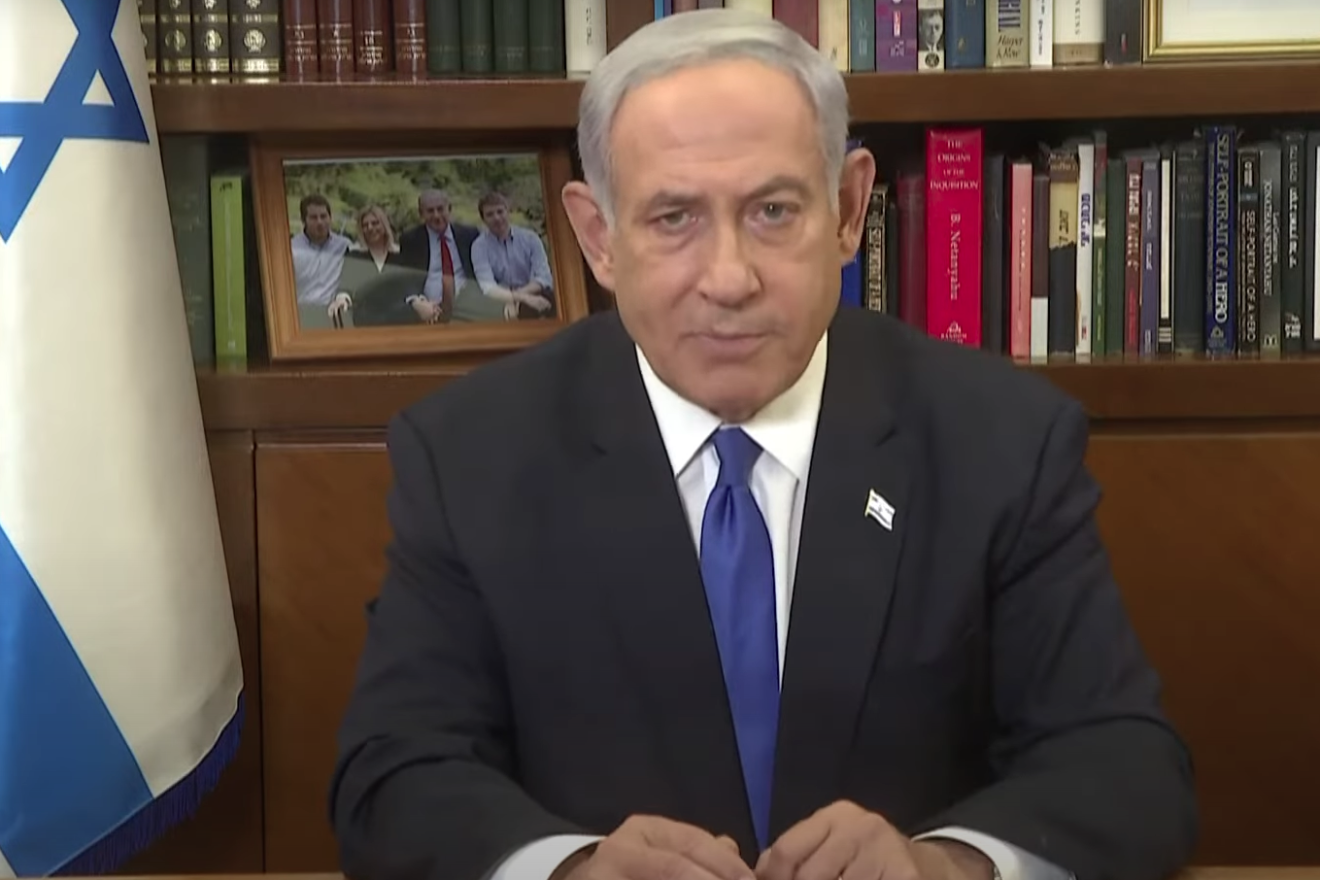Israeli Prime Minister Benjamin Netanyahu again called for broad agreement on his government’s plans in an address to the nation following the unilateral passing of key judicial reform legislation.
On Monday afternoon, all 64 members of Netanyahu’s governing coalition voted into law a bill to restrict judges’ use of the “reasonableness” standard. Opposition lawmakers boycotted the third and final vote.
The amendment to Basic Law: The Judiciary bars “reasonableness” as a justification for judges to reverse decisions made by the Cabinet, ministers and “other elected officials as set by law.”
“Today, we performed a necessary democratic step,” Netanyahu opened his speech on Monday night, explaining that realizing the will of the voters “is not the end of democracy … it is the essence of democracy.”
“Because of the importance of the issue, the coalition worked to reach agreements with the opposition,” the prime minister continued. “We agreed to stop the legislation and stopped it for three months. We agreed to significant changes.”
However, “no compromise of ours was ever accepted, not even one,” he said. “Even today in the plenary, in the middle of voting, until the last minute, we tried to reach agreements, but the other side refused.”
The prime minister confirmed reports that the coalition would seek an agreement on the rest of the judicial reform package over the summer break, which starts on July 30.
However, opposition leader Yair Lapid of the Yesh Atid Party has already stated that “the opposition will not be a partner in talks that are just an empty show.”
After the “reasonableness bill” passed, Lapid announced that “as early as tomorrow morning, we will petition the High Court against the unilateral abrogation of the democratic character of the State of Israel and the anti-democratic and predatory nature in which discussions in the Knesset Constitution, Law and Justice Committee were conducted.”
“We all agree that Israel must remain a strong democracy, that it will continue to protect everyone’s individual rights, that it will not become a halachic state,” Netanyahu said, using the term for Jewish law.
Netanyahu said that everyone agrees that the courts will continue to be independent. “I want to emphasize this again: No party should control the courts,” he said.
“We have one country, one house, one people. On the eve of Tisha B’Av, we must safeguard these above all else,” he said. He called on his “brothers and sisters in the reserves” to leave the Israel Defense Forces “out of any political controversy.”
Last week, Netanyahu and IDF Chief of Staff Lt. Gen. Herzi Halevi met with Israeli Defense Minister Yoav Gallant to discuss the issue of refusals to serve. In a statement, the Defense Ministry announced that Gallant and Halevi briefed Netanyahu on the “security situation and the competence of the IDF.”
“A final word to our enemies: I know that you don’t know what democracy is. Do not build on the argument within us,” Netanyahu concluded on Monday. “As always, we will stand shoulder to shoulder to rebuff any threats to our beloved state.”
In his speech, the prime minister also referred to a widely-shared video, in which proponents and critics of the judicial reform can be seen shaking hands.
“They shook hands—not as enemies, not as haters, but as brothers. This is the people of Israel. This is our spirit,” he said.


























